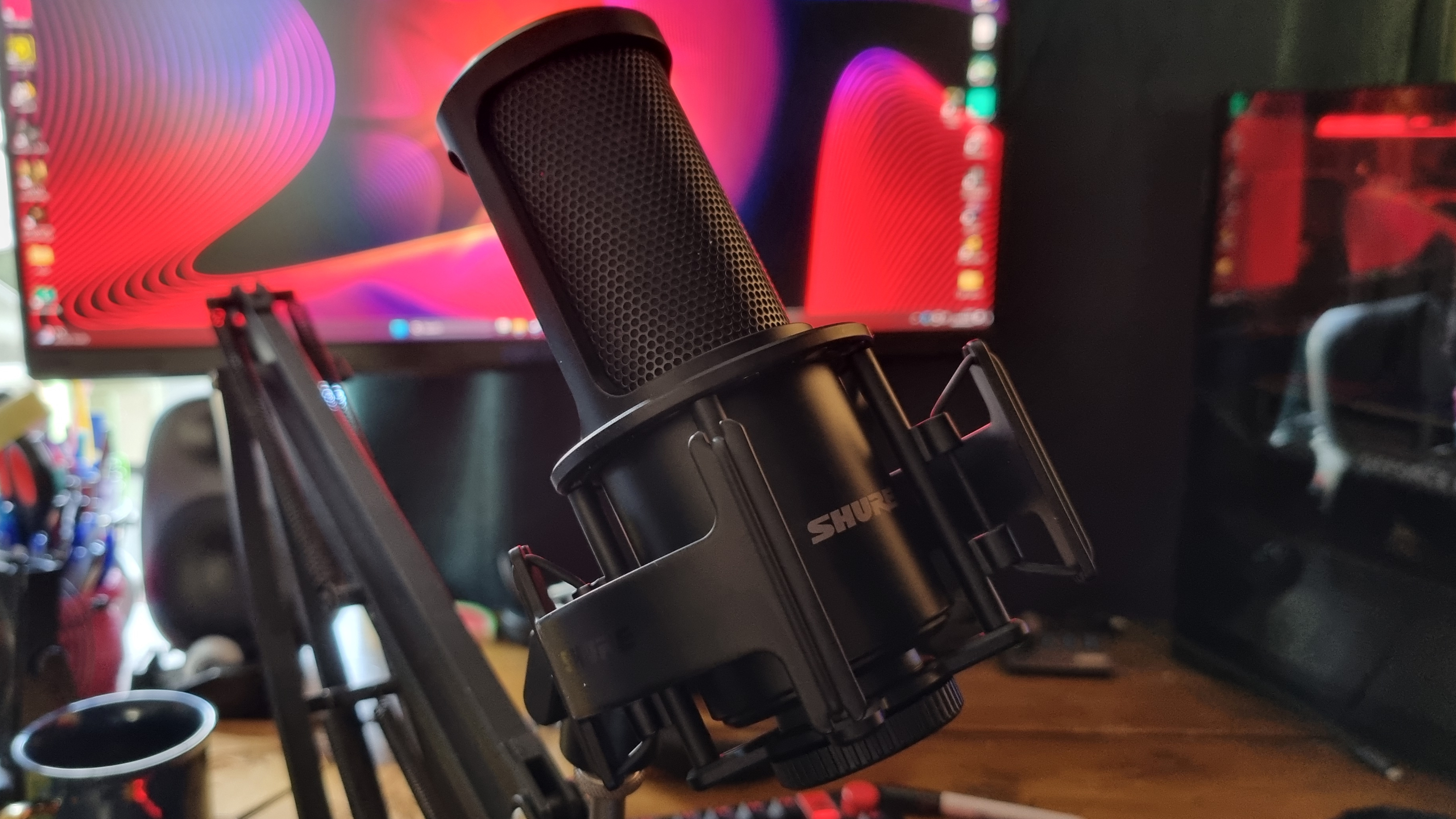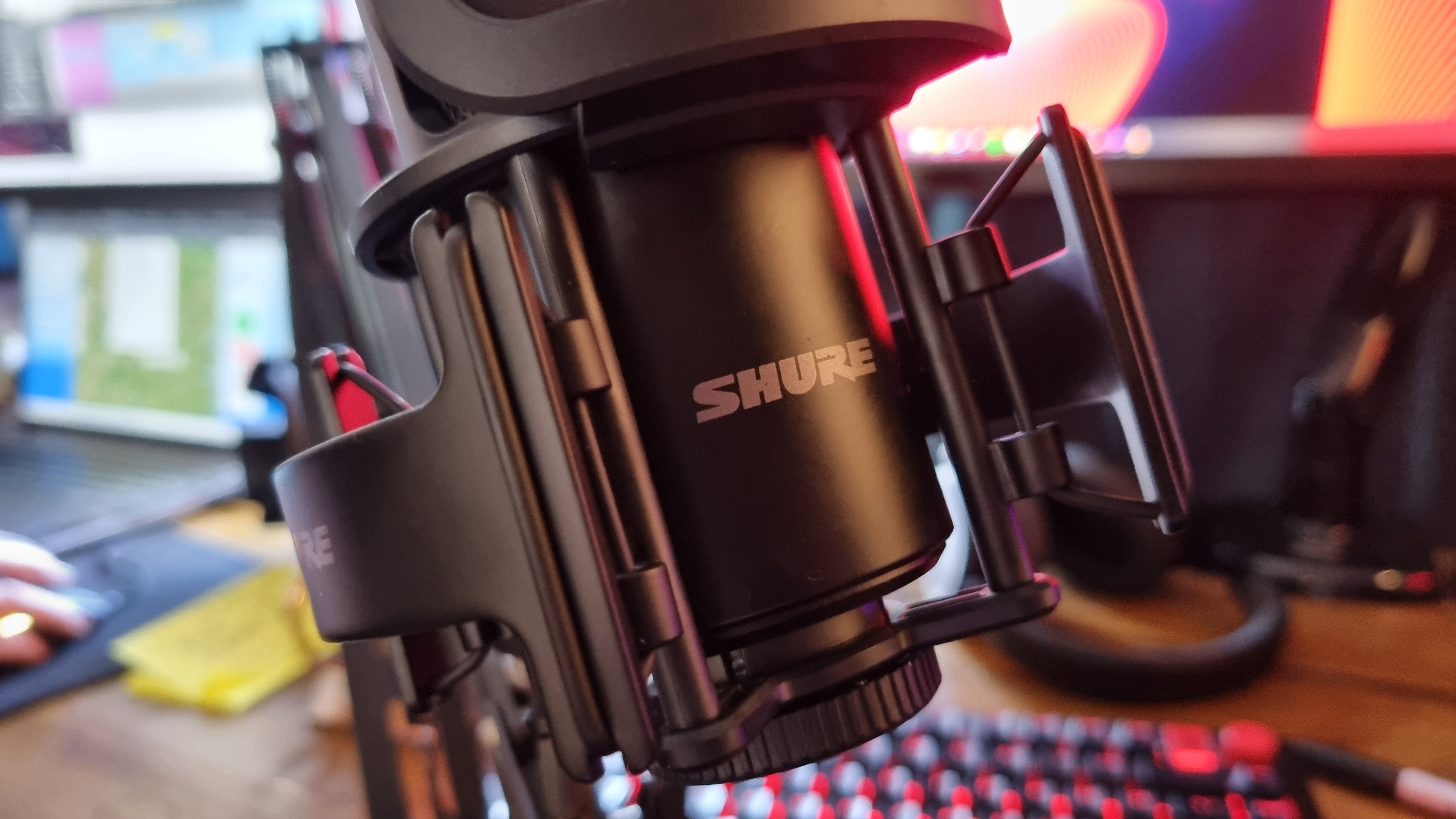Our Verdict
The Shure SM4 makes for a brilliant all-round content creation mic, but being an XLR-only unit you'll need a fair bit of extra gear to get it up and running. For home recordists it's a boon, but casual users would likely be better served by something cheaper.
For
- Superb audio capture for creative types
- Professional-grade shockmount
- Excellent unwanted noise rejection
Against
- XLR only
- Expensive
- No included stand
PC Gamer's got your back
Should you wish to record your vocals for the purpose of gaming, meetings, or a podcast or two, there are a wealth of brilliant microphone options available to you. And, it must be said, quite a few of those brilliant microphones are made by Shure, a company so entrenched in the audio recording space it might as well have set up a tent. However, if content creation is your game, you might be considering upgrading from a regular USB-connected mic into the deep waters of XLR-based audio capture, and if so, Shure says it has you covered.
The Shure SM4 is the sort of microphone you might find in a home recording studio, aka your long-haired mate's garage which he's handily plastered with bits of egg crate and the odd spiky piece of foam. It's a condenser microphone with a cardioid polar pattern, which means it's designed to pick up both at close range and at a distance, and is appropriate not just for recording vocals, but also capturing instruments, ambient sounds, or really anything you might want to pick up in a small room.
It's also been heavily shielded to prevent unwanted RF noise from wireless devices, and comes with a 1-inch brass dual diaphragm capsule that, on paper at least, is a major upgrade over the units you'll find in most desktop mics. And, it must be said, it's not cheap.
The microphone alone will run you $219/£209 for the basic unit with a boom arm adapter clip, but Shure has provided me with the full $299/£275 Studio Kit, which includes an elastic-sprung shockmount, a detachable magnetic pop filter (designed to complement the built-in pop filter in the mic itself) and a handy-dandy carrying case for taking it on the move.
What it doesn't include is the +48 V DC phantom-powered XLR recording interface you'll need to connect it to your PC, the appropriate cable, or an appreciable amount of talent. The first two of those things, however, are available these days for sub-$100 sums, and as someone who's worked in content creation in some form or fashion for large parts of my career, I have a few of them knocking around. They represent a step above the plug and play, shake-and-bake audio of the casual user, and a bold move towards pushing your audio talents out towards the big wide world of content creation.
And, it must be said, when we edge towards semi-professional microphone territory, the prices have a tendency to shoot up rather rapidly—which means the Shure SM4 is actually fairly well-priced for its market segment. Still, it's a lot of moolah for a microphone, and whether you need one or not is something I'll be getting on to later.
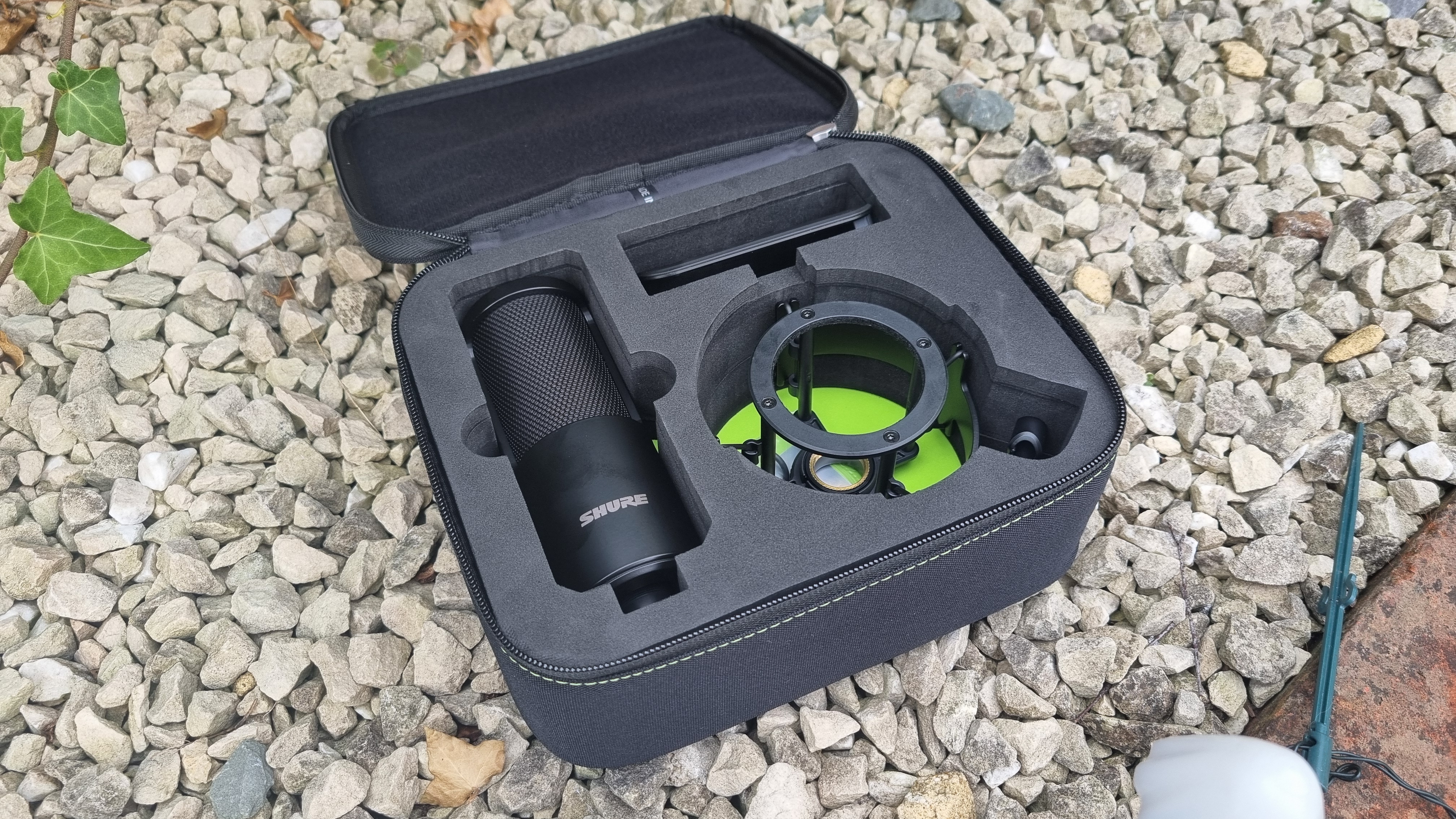
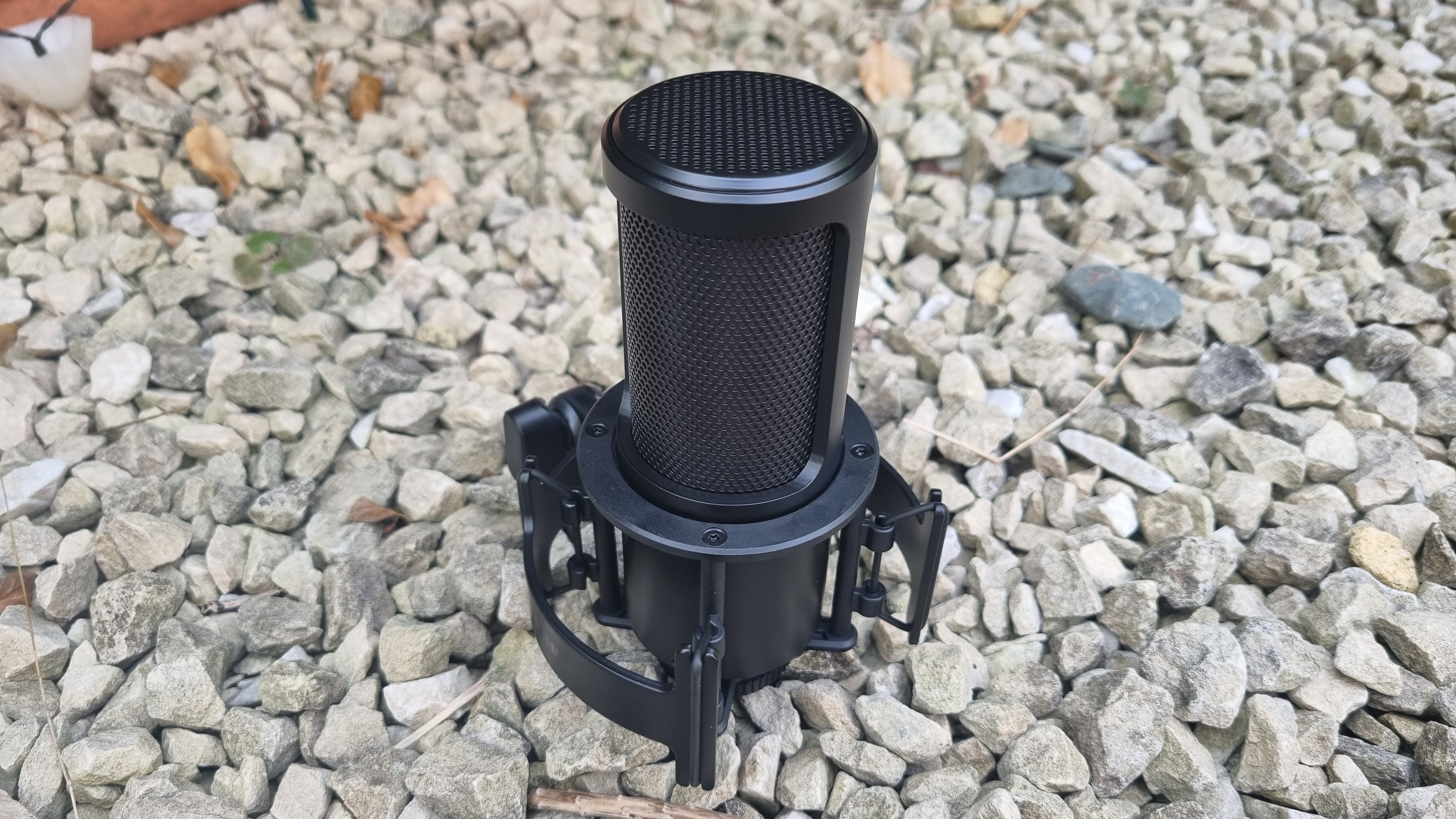
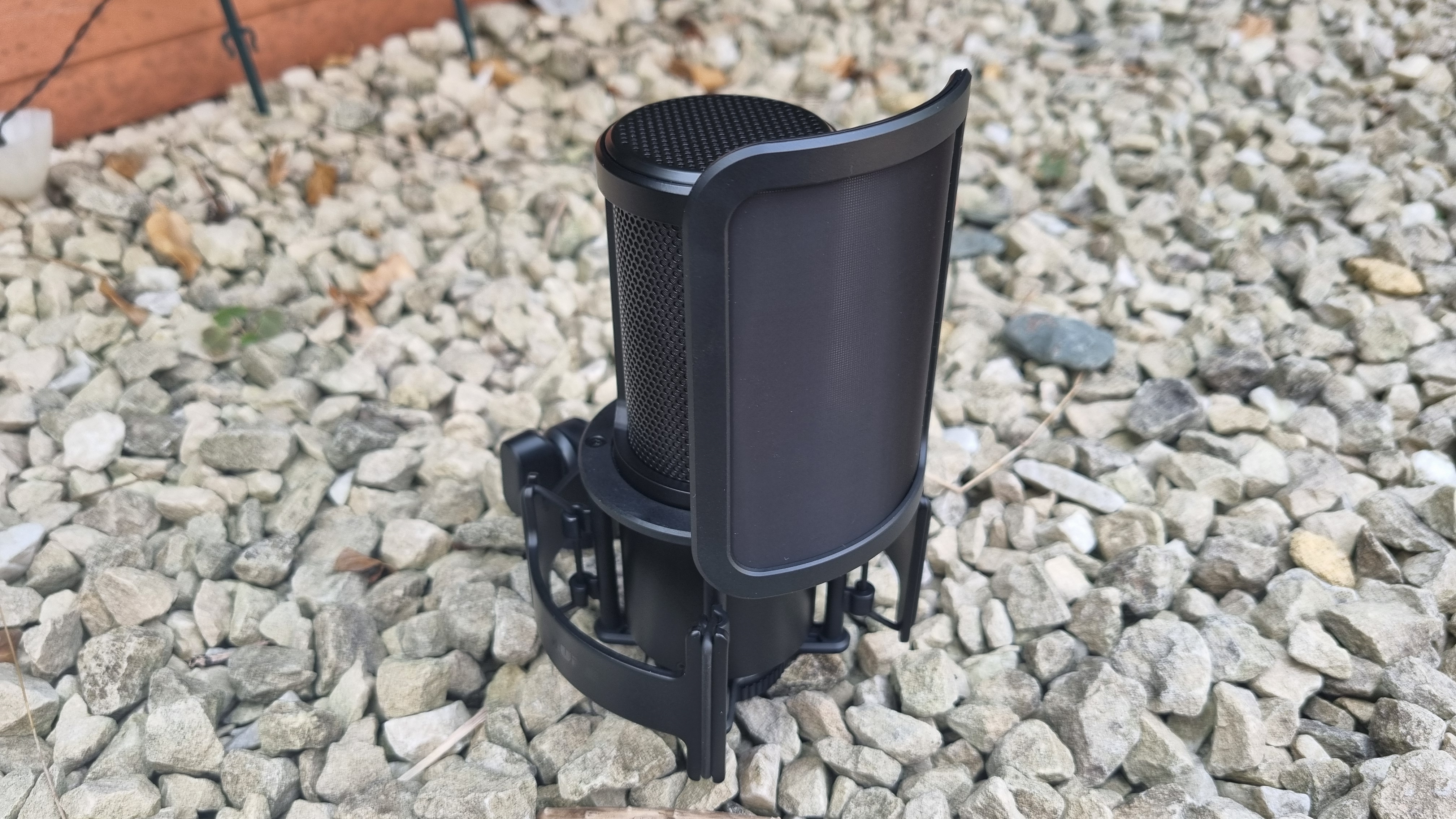
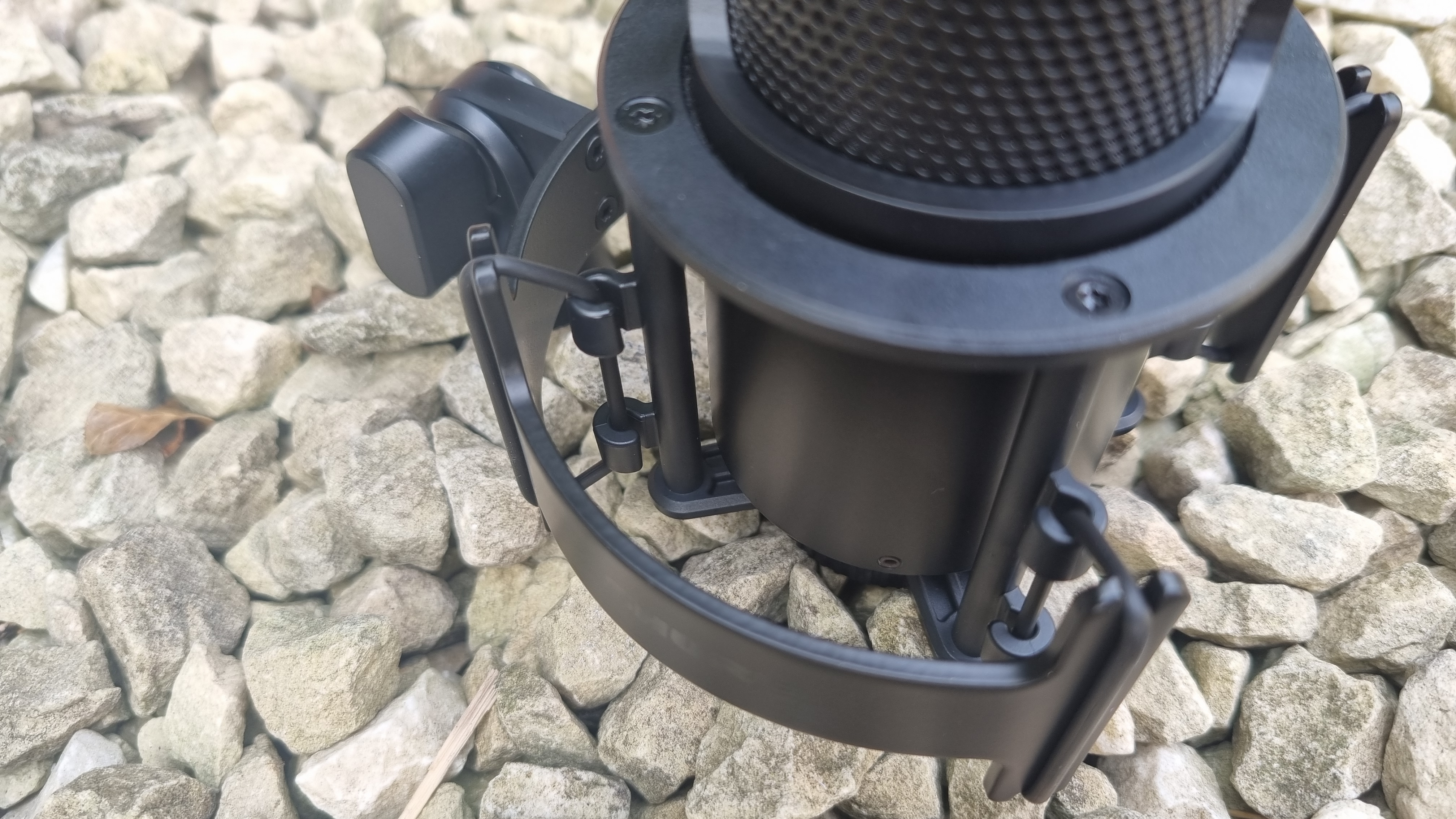
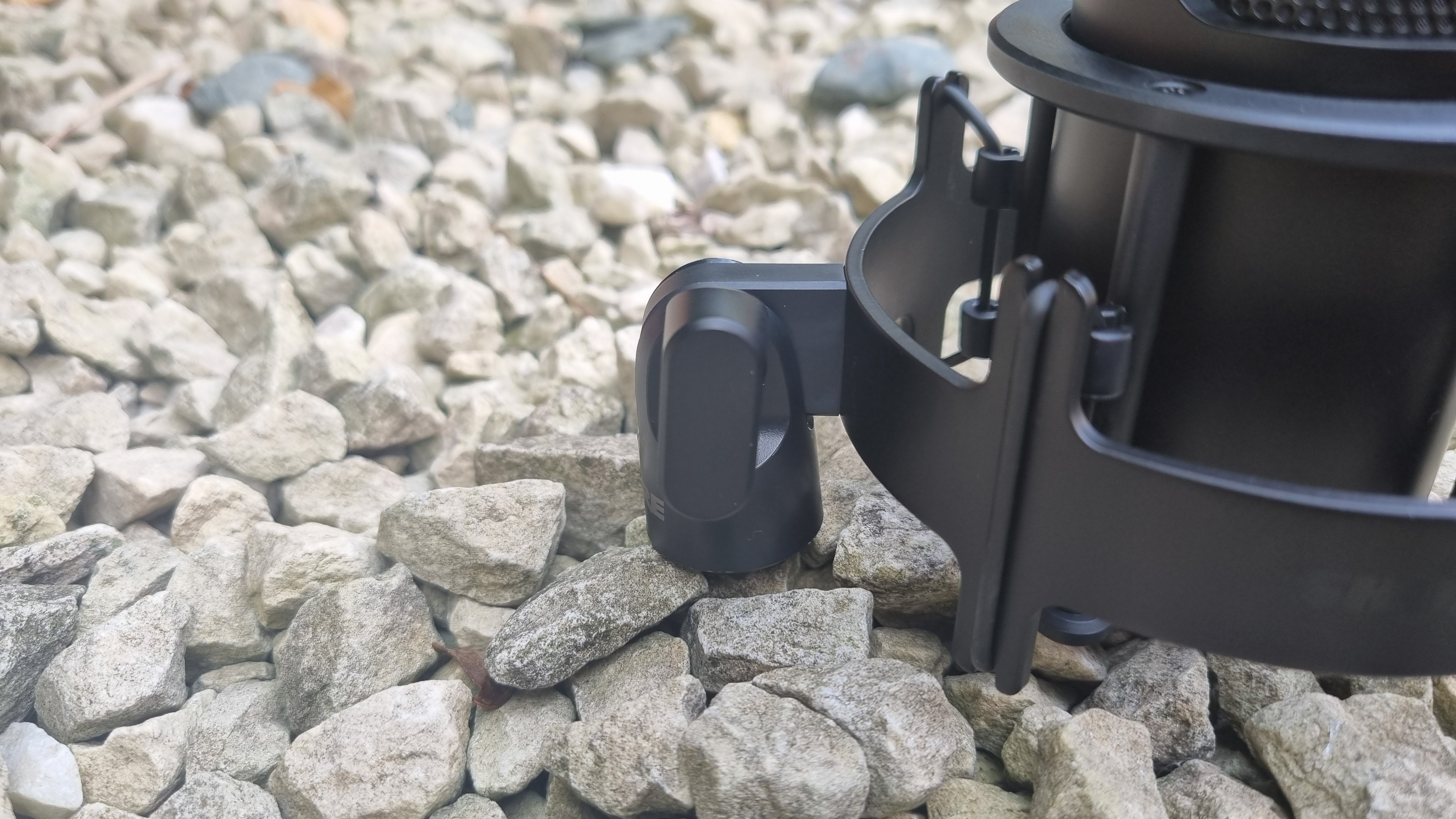
For now, let's focus on the mic itself. It's a gloriously well-made bit of kit, with the sort of weight and dusky finish that I'd associate with studio-grade gear. This is going to sound like an odd thing to say, but it even smells professional. Off to the side of the shockmount is a 5/8 inch thread, with an included 3/8 inch brass adapter ring for different sizes of boom arm mounts, along with another 5/8 inch thread hidden in the base of the mic itself.
Keep up to date with the most important stories and the best deals, as picked by the PC Gamer team.
Nope, no desktop stand for you. This is a microphone designed to be used with an arm, and Shure will sell you one for $120. Here's a little tip, though—while the Shure model is likely to be pretty good, you can pick up a $40 unit that will probably do the job damn near as well. A fancy one is a nice thing to have, but I've been using a pair of these Tonor boom arms for years without incident. Every saving helps, right?
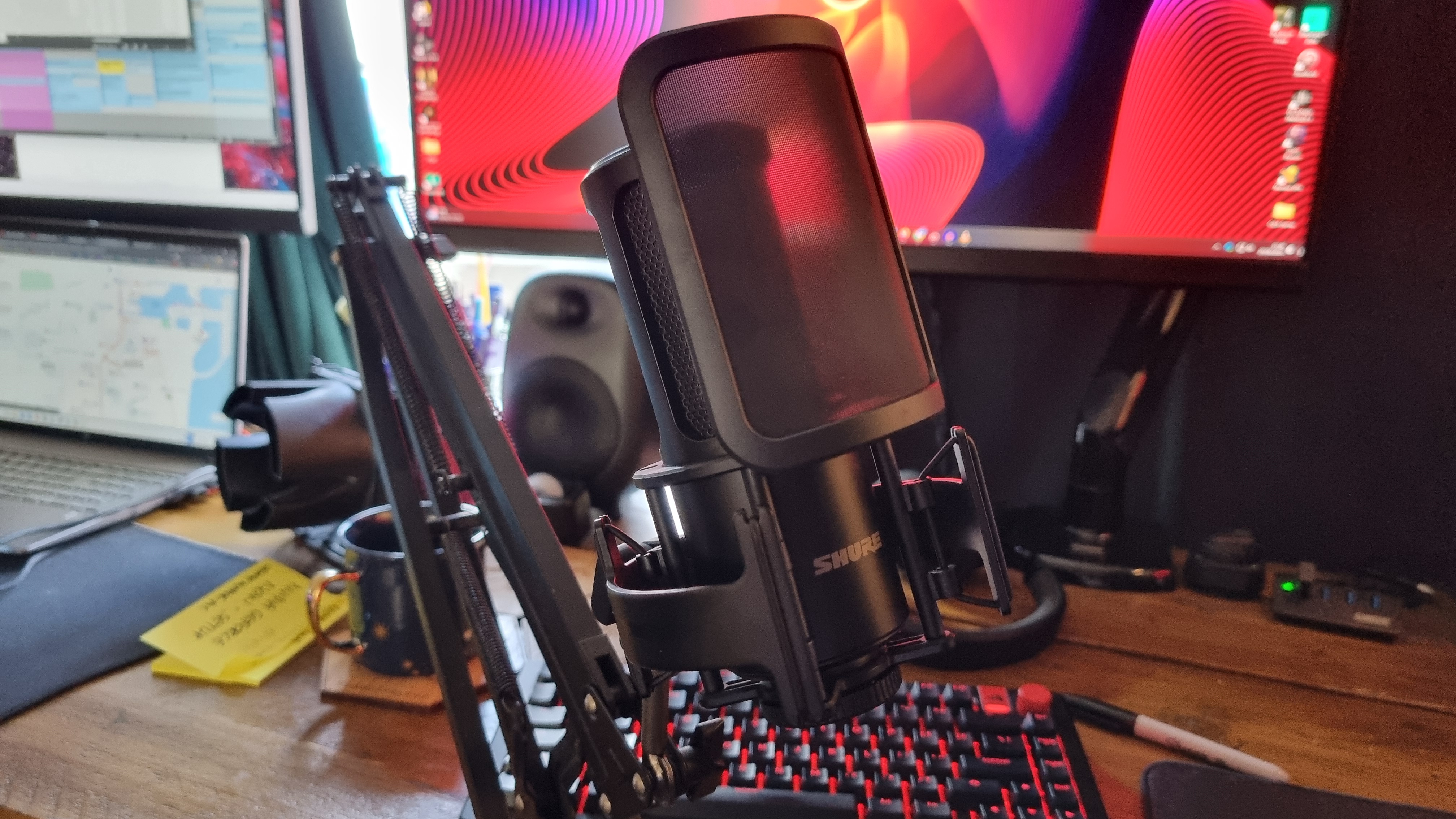
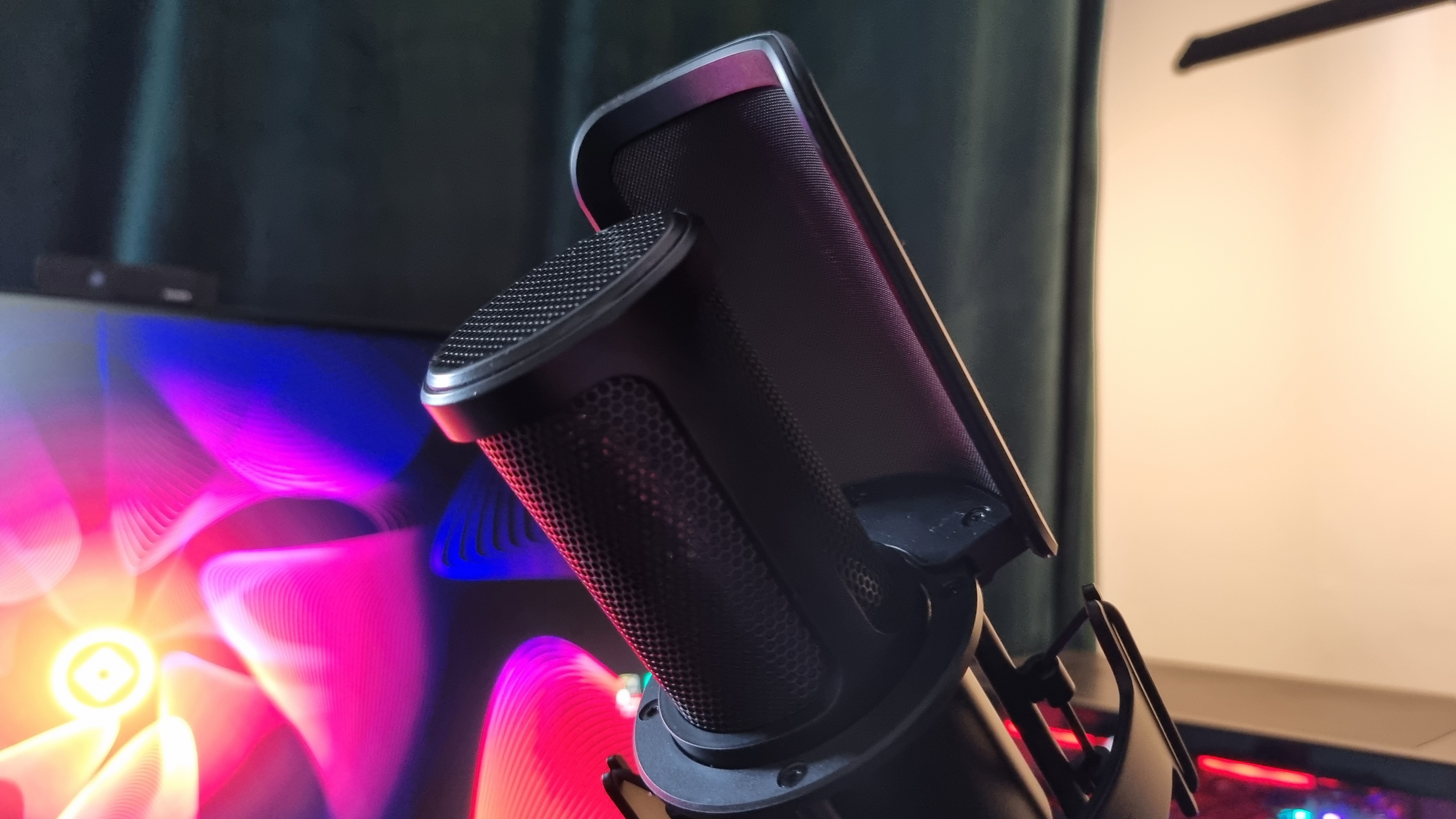
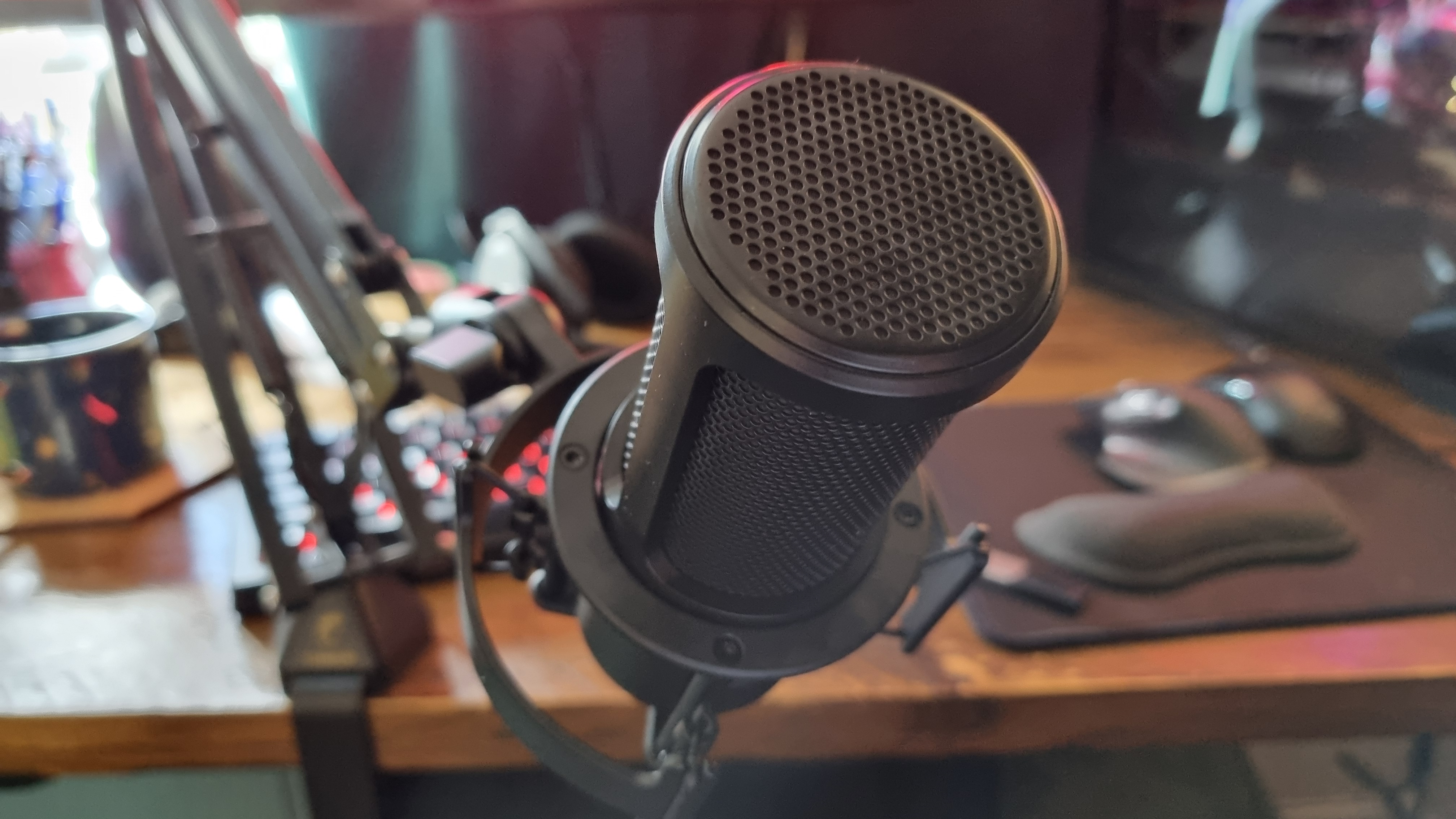
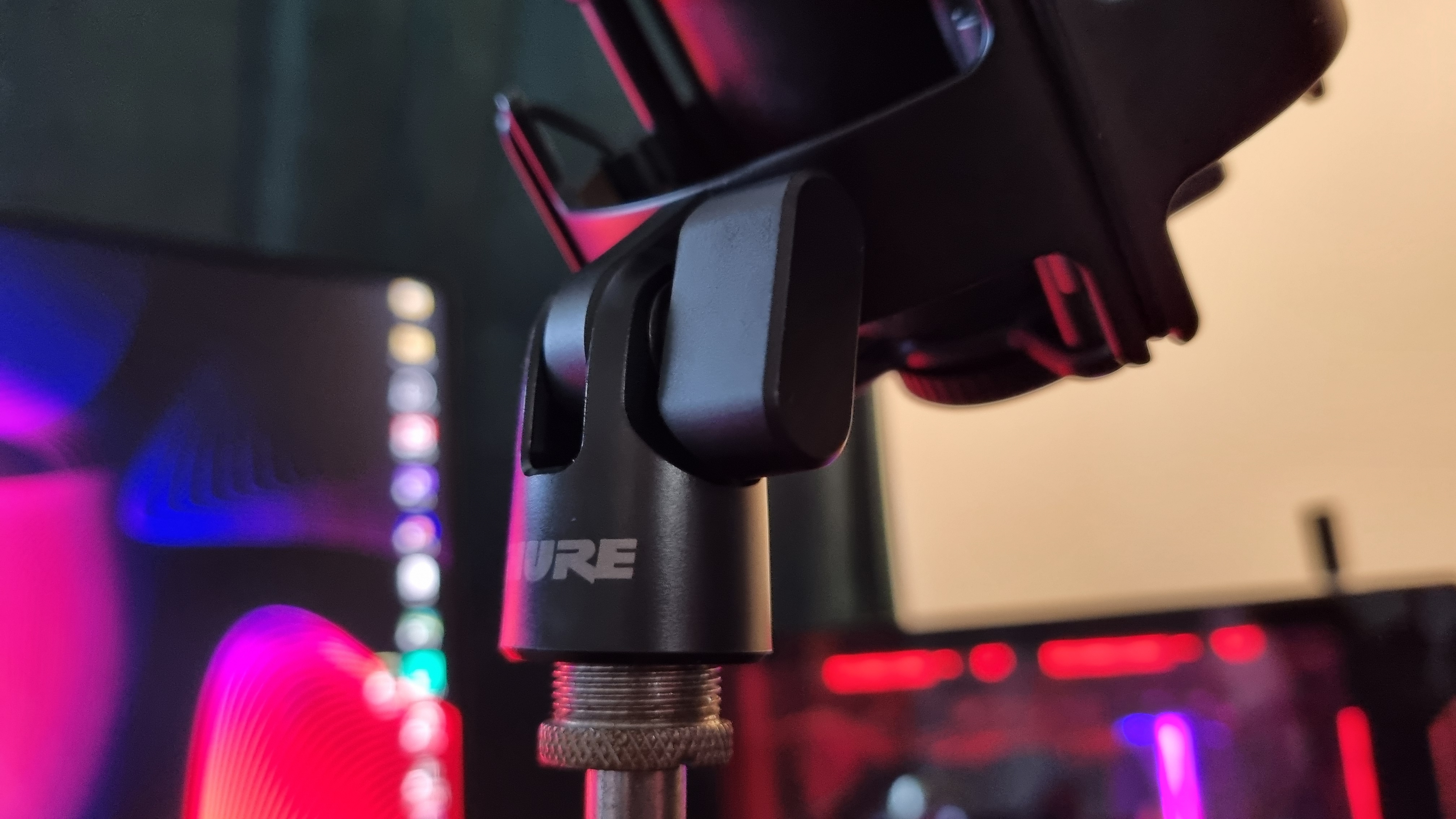
Attached to an appropriate boom arm and XLR cable, and plugged in to a $69 M-Audio XLR to USB interface I have lying around (I had to blow the dust off, but it does the job adequately), the Shure SM4 reveals itself to be a simply lovely-sounding microphone. With a 20 Hz to 20 kHz frequency response and the benefits of all that shielding, combined with its 1-inch brass capsule, it's got a tendency to reject unwanted noise and capture a warm, defined tone, with the sort of smooth-yet-edgy clarity I'd associate with some very expensive studio microphones.
Shure recommends placing it between one and six inches away from your mouth for vocal capture, which means the extra, magnetically-attached pop filter comes in handy for reducing plosives. The built-in version does an admirable job, but I'd say the extra unit takes away any worries about accidentally recording a "puh" and "buh"-filled vocal capture in a hurry. Plus, given the elasticated shock mount and the mics tendency to reject unwanted noise, capturing a studio-like vocal tone is about as easy as could be.
It's remarkable how well the noise-rejection is engineered into the physical microphone itself, which means for vocal work you could absolutely get away without software noise cancelling, and that's more than I can say for most cheaper models.
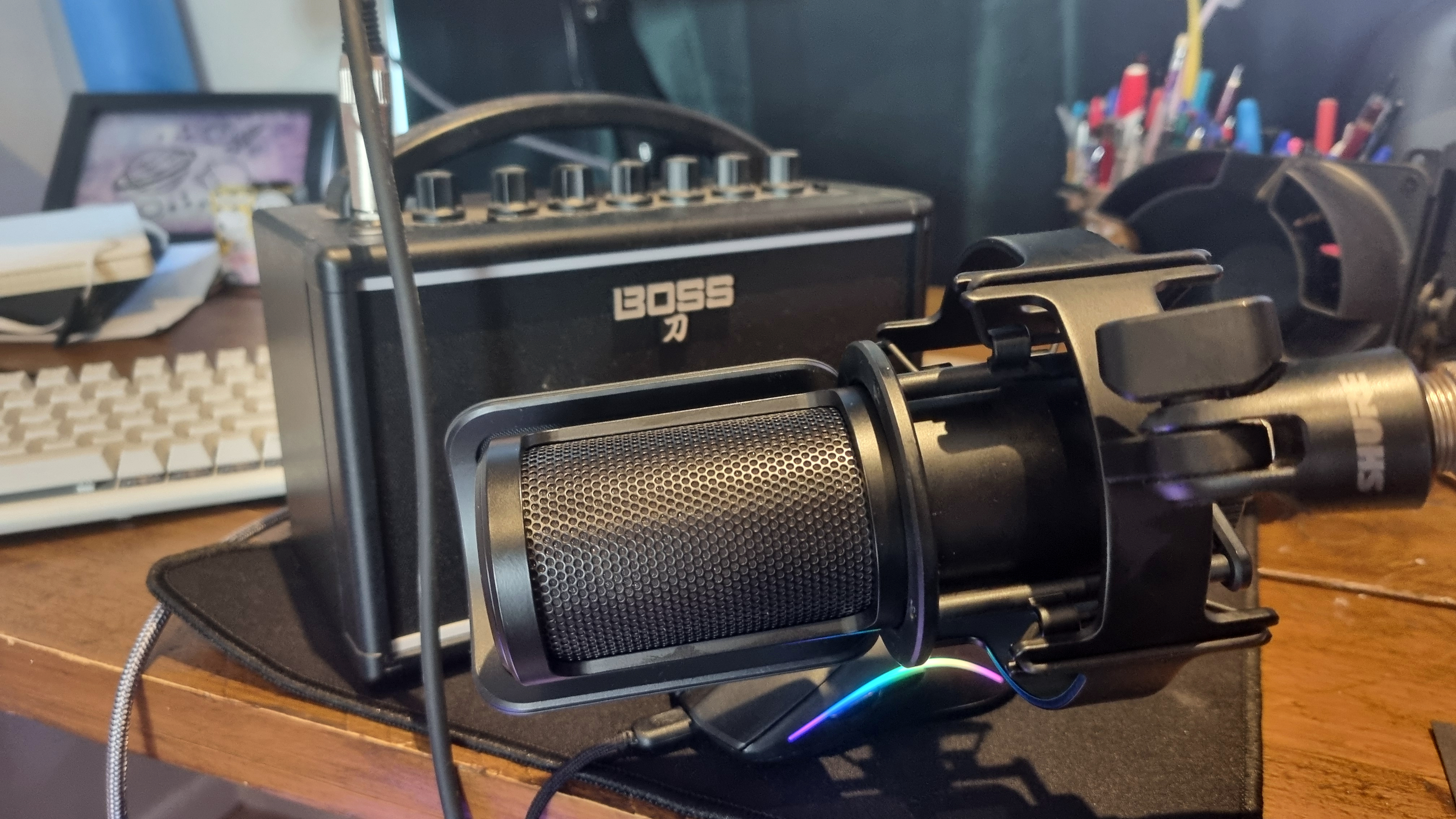
This is a creator microphone, though, which means I'd better dust off my guitar and have a little noodle to test its instrument-capturing chops. I don't have a front room stacked with valve amps anymore, so what you're listening to here is a raw recording of my rusty playing through a tiny Boss Katana practice amp with zero added compression, studio-trickery, EQ, or effects, beyond a bit of delay and chorus on the amplifier itself. Behold, dear reader—my diminishing talent:
Forgive the sloppy guitar work, it's been a while. Anyway, I'd say that's a pretty good instrument mic alright, especially as it's capturing a tiny budget amp in an un-treated room through a bargain-basement recording interface with no filters, noise gates, or tweaks. It pains me slightly to put up a musical recording without EQ-ing out the hiss of the amp and adjusting the sound, but this is as raw as it gets—and as raw signals go, the little Shure captures extremely well.
That being said, I'd perhaps shy away from putting it in front of anything capable of titanic amounts of volume, simply because it's a condenser model. The diaphragm inside that brass capsule will likely take more of a beating than most, but something dynamic like the classic Shure SM57 is the better choice if you're planning on close-micing something grunty. Condensers are more sensitive, fragile beasts in general, although this one feels like it's been specced highly enough to take more abuse than your average model, at least.
✅ You're branching out into home recording: The SM4 is a versatile, recording-friendly beast, which means it's an excellent choice for creative types looking for their first good mic.
✅ You want clean, clear audio capture from the start: The built-in noise rejection qualities mean you'll have much less work to do cleaning up your takes than with cheaper models.
❌ You're looking for something USB-based and plug and play: You'll need a phantom powered XLR audio interface for this one, although it must be said it's a very easy mic to set up regardless. Still, it's extra fuss—and extra expense.
❌ You're on a budget: Semi-pro gear like this is expensive, and if you just want a good microphone for capturing your vocals, cheaper, USB-based models will likely do you just fine.
The question you should be asking yourself, though, is how invested you are in the idea of home recording. If you're already equipped with an XLR audio interface and the right cables and boom arms, I wouldn't hesitate to recommend the Shure SM4 as a brilliant all-round creator microphone. Should you just be starting out, however, then I think it'd be worth taking a look at your exact use case.
For those looking for a good desktop-based vocal microphone, we've got a whole best microphone for gaming guide that should have you covered. And if it's pure podcast-style vocal capture you're after, I think you'd be better served with the Shure MV7+. It doesn't have the same wide capture and versatility as the SM4, but it's a USB Type-C plug and play device that really takes the hassle out of recording your spoken-word vocals at home.
And if it's streaming audio you want, the SteelSeries Alias Pro goes as far as to provide you with a good audio interface, too, complete with some streamer-friendly programmable controls on the front, for similar money. It also neglects to provide you with an included boom arm, but bringing an interface into the equation for similar cash is difficult to argue with.
That being said, if you really are taking your first steps into building a home recording studio of your own, or perhaps upgrading an existing one beyond USB-connected gear, I'm sold on the idea of buying a Shure SM4 as a do-it-all solution. Its reliance on outside equipment is really only a reflection of the nature of high-end audio, and while USB-based all-in-one mics are fine for specific purposes, if you're looking to take a step towards, say, creating content for a living, you will likely want to consider buying a more capable setup.
The Shure SM4 would certainly make a worthy addition to that arsenal, and in that sense, I'm happy to recommend it. For your average user, however, it's likely more than you really need.
The Shure SM4 makes for a brilliant all-round content creation mic, but being an XLR-only unit you'll need a fair bit of extra gear to get it up and running. For home recordists it's a boon, but casual users would likely be better served by something cheaper.

Andy built his first gaming PC at the tender age of 12, when IDE cables were a thing and high resolution wasn't—and he hasn't stopped since. Now working as a hardware writer for PC Gamer, Andy spends his time jumping around the world attending product launches and trade shows, all the while reviewing every bit of PC gaming hardware he can get his hands on. You name it, if it's interesting hardware he'll write words about it, with opinions and everything.
You must confirm your public display name before commenting
Please logout and then login again, you will then be prompted to enter your display name.
